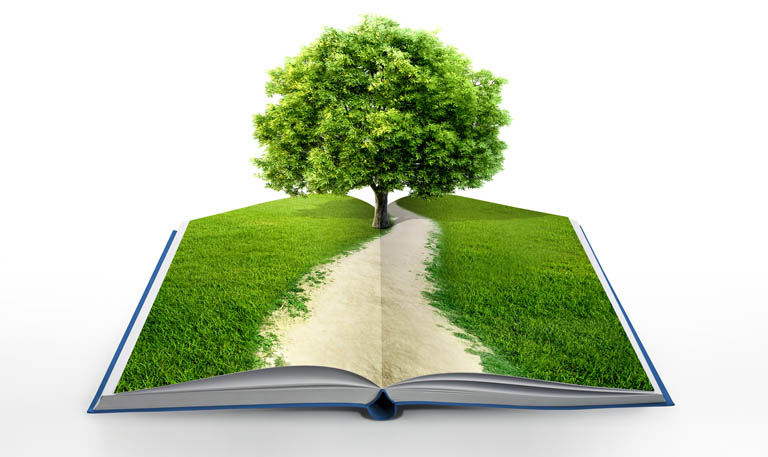My friends thought I was crazy when I launched my kayak 10 years ago for a 2,350-mile adventure from the headwaters of the Mississippi River to the Gulf of Mexico. My inner Huck Finn had dreamed of this journey since I was a boy living on the banks of “Big Muddy,” and that day was the beginning of my dream come true. I was on sabbatical from my college teaching career, and my focus was studying the environment. What better way than to launch my boat into nature’s ultimate classroom, the great outdoors?
Long before printed books, Native peoples learned from the first book—the natural world. Elders shared stories that explained natural phenomenon like the changing of the seasons, and myths probed how the world was created. The skies were a grand screen on which epic tales were told. Creatures, great and small, were the instructors. The poet Mary Oliver captures the essence of this pedagogy writing, “Instruction for living. Pay attention. Be astonished. Tell about it.”
The flow of the river, its twists and turns, become my curriculum—fish and fowl my teachers, locals, “river angels.” I learn many lessons and this pastor/professor becomes the “paddle pilgrim.”
Ten years later at 74, I decided to do some graduate study in my favorite stretch of the Mississippi River, its headwaters. Spectacular scenery, abundant wildlife, and peaceful quiet call me like a school bell to come and learn.
Launching from Lake Itasca in Northern Minnesota in early June, I paddle with friends Ellen Mcdonah and Jim Lewis, who have each paddled the entire Mississippi. Expecting warm days and cool nights, we are astonished by record, 100-degree heat. Lesson one: “Hope for the best, prepare for the worst.”
At its start, the Mississippi is not mighty but meager. Rather than drag our boats in the shallow water we decide to launch downstream in one of the larger lakes near Bemidji, MN. While on the water we enjoy the pristine wilderness. Then each night at camp, we are besieged by clouds of mosquitoes. As the heat persists, we experience the river getting lower and lower. Each day we witness—in real time—a mini-Grand Canyon being sculpted in mud banks, exposing holes where muskrats, otters, and beavers once lived.
Climate change is a daily subject in our learning laboratory. As our boats scrape the river bottom, we are experiencing, firsthand, the effects of humans on the environment.
Looking down into clear water, I am delighted by a parade of fish below my boat. A thick forest of reeds creates a safe nursery for young pike, suckers, and walleye to mature. Looking up, I see eagle fledglings learning to fly and fish. Trumpeter Swans, with eight-foot wingspans, demand a pause in my paddle to simply savor their beauty. This is my classroom. The headwaters, their home.
As a native Minnesotan I am proud of its visionary, “Clean Water, Land & Legacy” amendment to the state constitution, which sets aside three-eighths of one percent of sale tax dollars to fund projects to enhance water, land, arts and culture, parks and trails, and environmental and natural resources. The people of the land of 10,000 lakes value, enjoy, and protect its outdoor classroom.
Here are a few of the lessons from the Mississippi River Great Outdoor Classroom:
Native peoples teach us about caring for creation and living sustainable lives in harmony with Mother Earth.
Environmentalists show us both the resilience and the fragility of the amazingly diverse and interconnected natural world.
Animals call us to treat them with love and respect as friends in a healthy and balanced co-existence.
Creation inspires us to ponder life’s deeper meaning, savour the moment, and think about the long-term health of our planet and its inhabitants.
Perhaps my favorite teacher is a 9-year-old Ojibwe girl named Naomi. She is a member of the Water Protectors, an environmental group seeking to stop the building of an oil pipeline through their tribal lands. Standing by her “holy waters,” she asks me “Where will the animals live?” Where, indeed? Naomi’s question is a plea for responsible stewardship of the “father of waters” and mother earth.
I am teaching my grandson, William, to kayak. On a recent paddle when I say, “It’s time to head back to shore.” He responds, “Let’s keep going.”
We all have challenging and wonderful homework to do!
Dave Ellingson is a Lutheran pastor, master gardener, former distance runner, and father of five grown children. You can listen to his podcast at: https://anchor.fm/david-ellingson. He lives in Edmonds, Wash.


